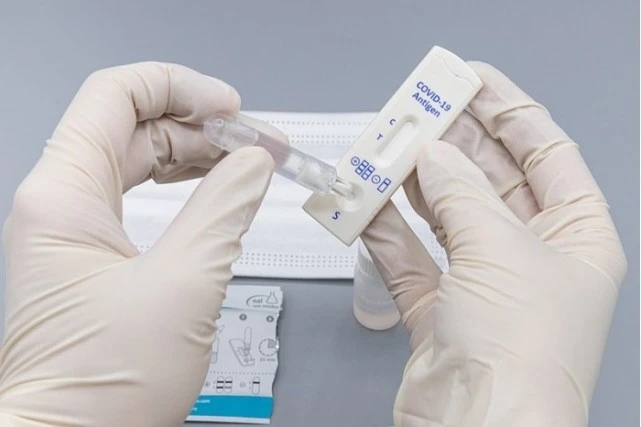
COVID-19 ist eine Atemwegserkrankung, die zu schweren Erkrankungen führen kann, insbesondere bei Menschen mit Vorerkrankungen wie Diabetes, Fettleibigkeit, oder hoher Blutdruck.
Arten von COVID-19-Tests
Um eine aktuelle Infektion mit SARS-CoV-2 festzustellen, werden üblicherweise zwei Arten von Tests verwendet, das Coronavirus, das COVID-19 verursacht.
Der erste Typ ist der molekulare Test. Zu den molekularen Tests gehören Nukleinsäureamplifikationstests (NAHT) wie Polymerase-Kettenreaktionstests (RT-PCR oder PCR-Tests). Sie werden normalerweise in einem Labor durchgeführt und sind im Allgemeinen genauer als Antigentests, aber die Ergebnisse können länger dauern.
Der zweite Typ ist der Antigentest, die einen anderen Mechanismus zur Erkennung von Infektionen nutzen. Diese Tests können bei Ihnen zu Hause mit einem Kit durchgeführt werden, das einem Schwangerschaftstest zu Hause ähnelt und innerhalb dessen Ergebnisse liefert 10-15 Protokoll.
Welchen Test soll ich machen lassen??
Es ist immer am besten, mit Ihrem Arzt darüber zu sprechen, welcher Test für Sie am besten geeignet ist.
Für Menschen mit Symptomen, Das Wichtigste ist, einen der beiden viralen Diagnosetests durchzuführen.
Wenn Sie Symptome haben, Holen Sie sich den Antigen-Schnelltest, sofern verfügbar. Wenn es positiv ist, Sie können mit der Isolierung beginnen, um die Menschen in Ihrer Umgebung vor der Ausbreitung des Virus zu schützen.
Aber wenn der Antigentest negativ ist, Sie sollten einen erneuten molekularbiologischen Test durchführen lassen (auch bekannt als PCR) Testen Sie und isolieren Sie sich unbedingt, bis Sie das Ergebnis erhalten.
Für die meisten Menschen, die keine Symptome haben, sich aber testen lassen möchten, weil sie möglicherweise exponiert waren, der molekulare/PCR-Test ist die bessere Wahl. Es können kleine Mengen des Virus gefunden werden, die möglicherweise sichtbar sind, bevor Symptome auftreten.
Weiterlesen: Warum beflockte Probentupfer für COVID-19-Nukleinsäuretests verwenden??

















